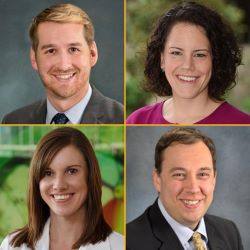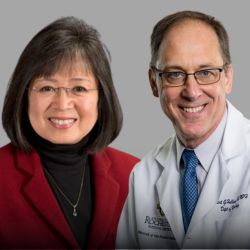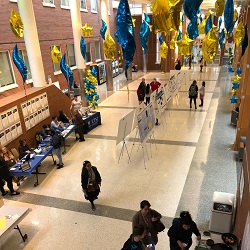How Can Translational Science Advance Health Equity? Find Out at Translational Science Grand Rounds
 Translational science is a field that accelerates and improves research processes to get more and better treatments to more people, faster. As part of its mission to educate the health care and research community about the opportunities translational science provides, UR CTSI is launching the Translational Science Grand Rounds event series in June.
Translational science is a field that accelerates and improves research processes to get more and better treatments to more people, faster. As part of its mission to educate the health care and research community about the opportunities translational science provides, UR CTSI is launching the Translational Science Grand Rounds event series in June.“Translational science is something many research teams are already doing, whether they realize it or not,” said Rebecca Laird, MBA, MDiv, operations director for the Translational Science Branch. “With this series, we are bringing in speakers who are experts in the field to show how translational science can have practical, meaningful impacts on research.”
SUNY Distinguished Professor Timothy Murphy, MD, is the director of the Clinical and Translational Science Institute at the University at Buffalo (UB CTSI). Murphy is the first guest speaker for the series, presenting “Advancing Health Equity through Clinical and Translational Science” on June 12 at noon in the Helen Wood Hall Auditorium, room 1W-304 (School of Nursing building).
"Perhaps the most important barrier to improving population health is the profound level of health disparities that exist in selected populations and communities in the US,” Murphy said. “The UB CTSI has a vision to advance and accelerate research to reduce health disparities and improve the health of our community and the nation. Translational research and translational science are powerful approaches to achieve health equity. I will discuss some approaches to applying translational science to the broad area of health equity research.”
Murphy noted that among institutions and the federal government there is an increasing emphasis on translational science to make research faster and more efficient.
“Since this is a new concept for some of our researchers, I will discuss principles of translational science and potential ways in which it can be applied to advancing health equity.”
Murphy is an infectious diseases physician-scientist who has engaged in translational research—the process of moving scientific discovery to practical treatments and care—the length of his career. He assumed leadership of UB CTSI in 2015.
“In this role, I have learned an enormous amount from UB researchers with whom I have worked. In addition, with a Clinical and Translational Science Award [CTSA], your institution becomes part of the national CTSA consortium, which includes the leading academic health centers in the country. This provides invaluable opportunities for learning, collaboration and sharing of ideas.”
Murphy believes that all research teams can benefit from translational science, even if they have no background in the field.
"Understanding and applying principles of translational science enables researchers to increase the impact and benefit of their research," Murphy said. "For example, a research team can study a specific problem of interest in their domain of expertise. During that process, by using the principles of translational science, the observations or solutions that they discover may be applied to other projects in other research domains. In this way, their observations advance research more broadly, even beyond their own field."
Murphy’s presentation at the first Translational Science Grand Rounds event is one example of the long-standing collaboration between UR CTSI and UB CTSI.
“Our CTSI has benefited greatly from this partnership, and personally, I value it tremendously,” Murphy said. “It is a privilege and a wonderful opportunity for me to be invited to speak at the first event of this new series.”
All members of the research community at the University are invited to attend this free, in-person event. Register here.
Jonathan Raab | 5/27/2025



